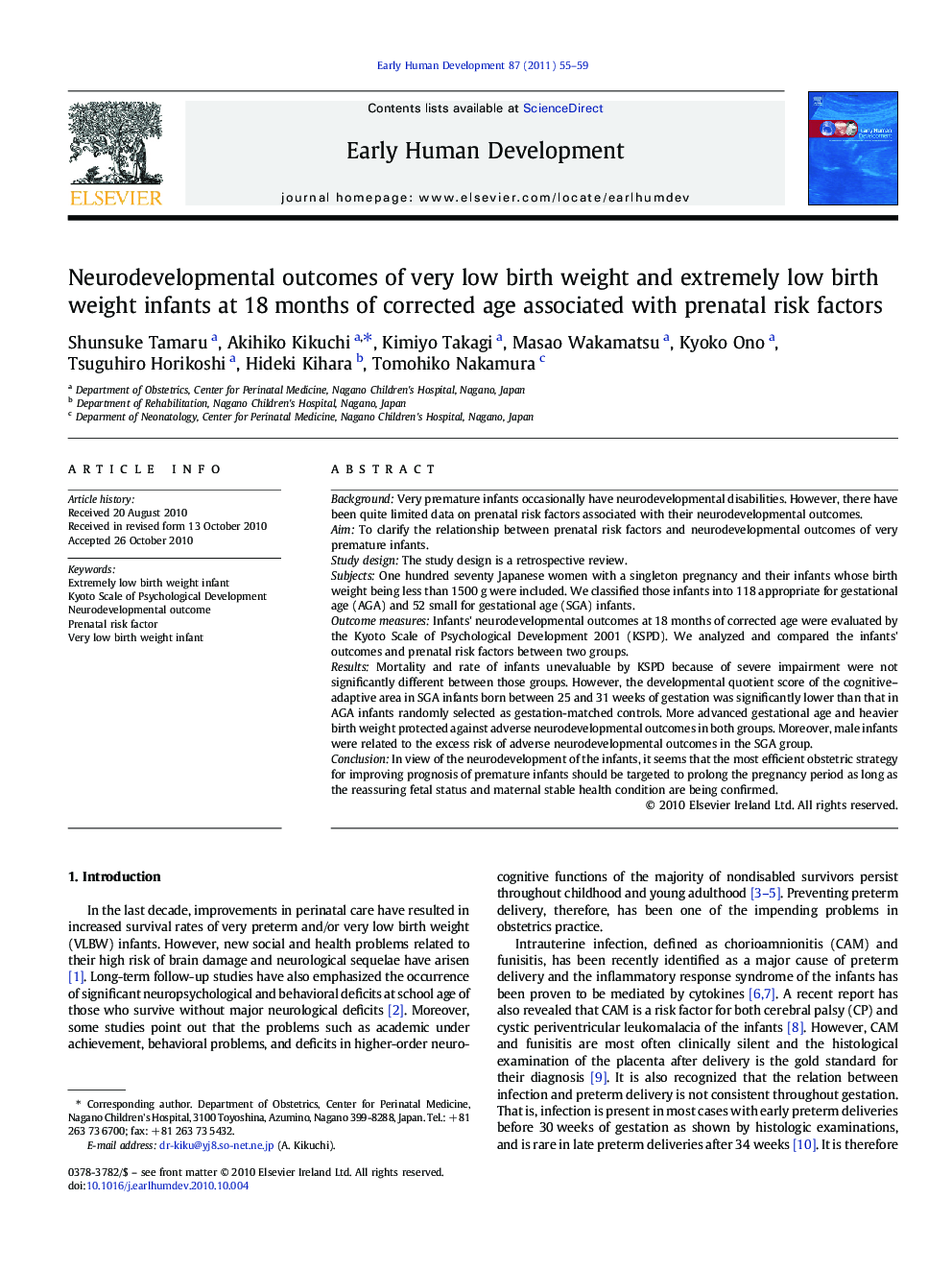| Article ID | Journal | Published Year | Pages | File Type |
|---|---|---|---|---|
| 3917371 | Early Human Development | 2011 | 5 Pages |
BackgroundVery premature infants occasionally have neurodevelopmental disabilities. However, there have been quite limited data on prenatal risk factors associated with their neurodevelopmental outcomes.AimTo clarify the relationship between prenatal risk factors and neurodevelopmental outcomes of very premature infants.Study designThe study design is a retrospective review.SubjectsOne hundred seventy Japanese women with a singleton pregnancy and their infants whose birth weight being less than 1500 g were included. We classified those infants into 118 appropriate for gestational age (AGA) and 52 small for gestational age (SGA) infants.Outcome measuresInfants' neurodevelopmental outcomes at 18 months of corrected age were evaluated by the Kyoto Scale of Psychological Development 2001 (KSPD). We analyzed and compared the infants' outcomes and prenatal risk factors between two groups.ResultsMortality and rate of infants unevaluable by KSPD because of severe impairment were not significantly different between those groups. However, the developmental quotient score of the cognitive–adaptive area in SGA infants born between 25 and 31 weeks of gestation was significantly lower than that in AGA infants randomly selected as gestation-matched controls. More advanced gestational age and heavier birth weight protected against adverse neurodevelopmental outcomes in both groups. Moreover, male infants were related to the excess risk of adverse neurodevelopmental outcomes in the SGA group.ConclusionIn view of the neurodevelopment of the infants, it seems that the most efficient obstetric strategy for improving prognosis of premature infants should be targeted to prolong the pregnancy period as long as the reassuring fetal status and maternal stable health condition are being confirmed.
